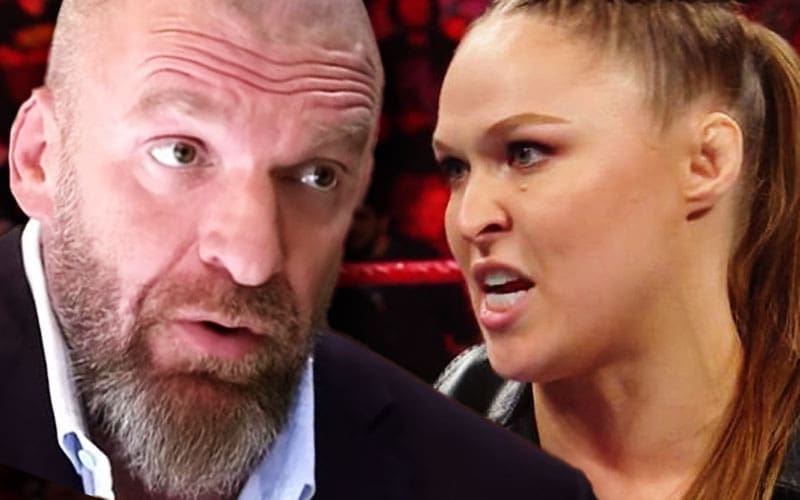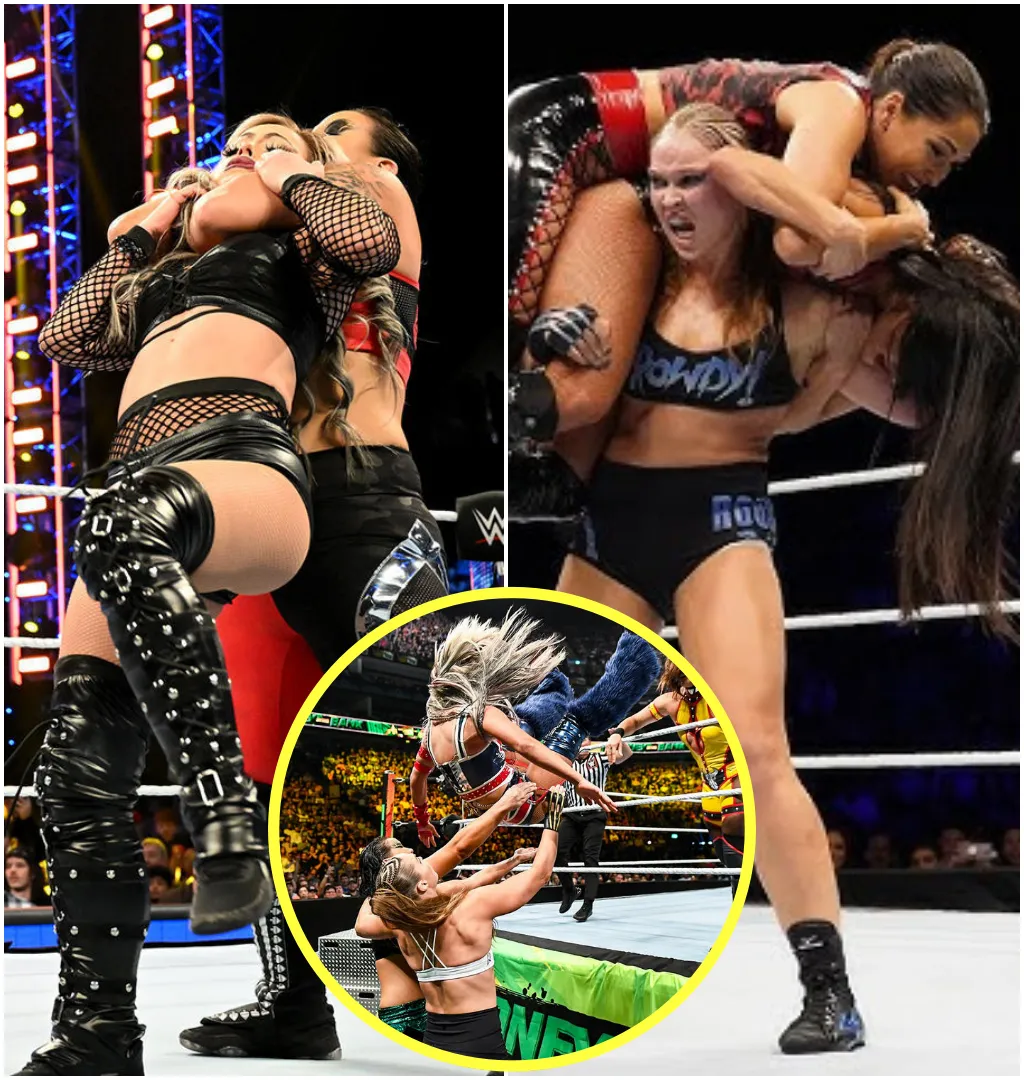Ronda Rousey's Departure from WWE: A Closer Look at Her Struggles and Frustrations

Ronda Rousey's departure from WWE following her SummerSlam match against Shayna Baszler last year left many fans and critics wondering about the reasons behind her exit.
Since then, Rousey has been vocal about her dissatisfaction with her WWE journey, shedding light on the challenges and frustrations she faced during her time with the company.
One of the key issues that Rousey highlighted was the discrepancy between her vision for her WWE career and the reality of how she was being booked.
She expressed her discontent with what she referred to as 'minimum effort booking' in WWE, indicating that her plans and preferences were not being taken into consideration by the company.
Rousey's desire to have a match against Becky Lynch at WrestleMania was a significant point of contention. Despite her clear vision for this storyline, it did not materialize as she had hoped.
This divergence between her expectations and the actual direction taken by WWE contributed to her growing frustration and disillusionment with her role in the company.
In her autobiography, "Our Fight," Ronda Rousey recounted a poignant conversation with Triple H, in which she expressed her desire to tag with Shayna Baszler, have her turn on her, and then put her over before leaving.
This storyline was of great personal importance to Rousey, and she emphasized the significance of making it happen before SummerSlam. However, it became apparent that WWE's priorities did not align with Rousey's wishes, leading to a sense of disappointment and disillusionment on her part.
Rousey's emotional state during this period was evident as she struggled to contain her tears while conveying her frustrations to Triple H.
Her candid expression of feeling overwhelmed and emotionally drained shed light on the toll that her WWE experience had taken on her well-being.
Furthermore, Rousey's desire for the same travel privileges as Roman Reigns pointed to a broader issue of equity and fairness within the company.
Her aspirations for equal treatment and opportunities reflected a deeper concern about representation and recognition for female performers in WWE.
The response to Rousey's public remarks about her WWE experience has been mixed, with some labeling her as a bitter woman. However, it is essential to consider the validity of her concerns and the challenges she faced within the male-dominated world of professional wrestling.
As fans and critics reflect on Ronda Rousey's tenure in WWE, it is crucial to acknowledge the complexities and nuances of her experiences.
Her departure from the company sheds light on broader issues related to creative direction, gender equality, and the well-being of performers in the world of professional wrestling.
Ultimately, Ronda Rousey's decision to step away from WWE serves as a reminder of the importance of listening to the voices of female athletes and performers, understanding their unique challenges, and working towards creating a more inclusive and equitable environment within the industry.
In conclusion, Ronda Rousey's departure from WWE and her candid remarks about her experiences within the company have sparked important conversations about gender, creative autonomy, and well-being in professional wrestling.
As the industry continues to evolve, it is essential to consider the lessons learned from Rousey's journey and strive towards a more supportive and empowering environment for all performers.



